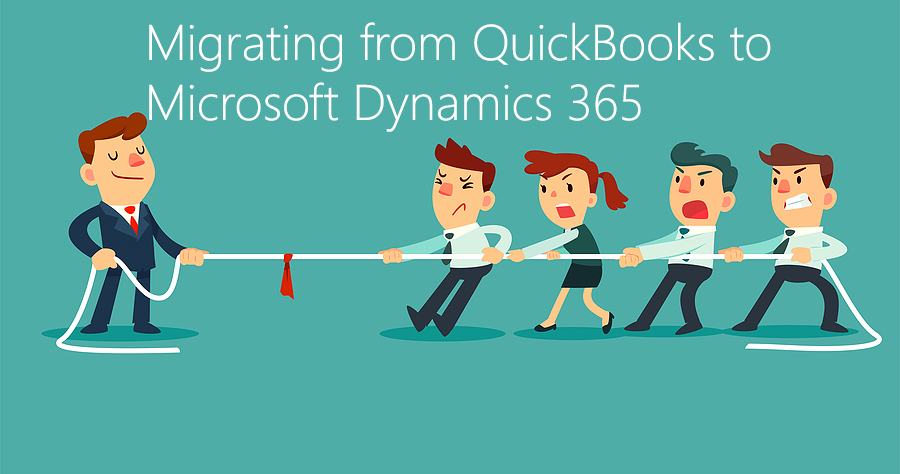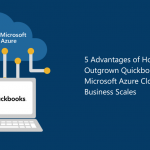
You need the right tool for the job. That applies to financial professionals as well as craftsmen. For the professional accountant or billing specialist, those tools come in the form of software solutions. There are numerous accounting-specific software platforms available which are ideally suited to small business owners. But when it comes to high-volume, large scale business these “weak” alternatives just don’t cut it.
For your business to function appropriately at scale, you need an enterprise resource planning (ERP) software designed to handle complex financial records, accountancy operations, and other logistical functions.
Take off the Training Wheels
Let’s start with a disclaimer: alternatives like QuickBooks are perfectly serviceable solutions for certain types of customers, specifically small business owners in need of basic accounting software. The problem with QuickBooks —and its various siblings— is that it’s not a one-size-fits-all solution. It has limitations that become more apparent as your business scales upward.
QuickBooks and its cousins aren’t designed to handle a heavy workload. For starters, these basic software suites don’t accommodate multiple users very well. Only a single accountant or billing specialist can utilize the system at one time without risking damaging errors and unwanted redundancies.
Additionally, if your workload exceeds a certain amount of transitions per month, an entry level software suite will easily get bogged down and lose functionality. In other words, it’s easy to outgrow retail accounting alternatives.
QuickBooks isn’t the only name in the industry. There are numerous, entry-level options suited for SMBs rather than growing businesses. Those alternatives include:
- Peachtree
- FreshBooks
- Account Edge
- Deskera
- Wave
- Zoho Books
- Intuit
The bottom line? If your business is in demand and growing, you need a platform with greater power and functionality than entry-level software can provide.
The Power of Dynamics 365 Business Central
The modern software market has changed. Once upon a time small-scale solutions such as Peachtree, QuickBooks, and Intuit were marketed as a suitable alternative for companies of all sizes. You’d be hard-pressed to find a company that didn’t employ QuickBooks at least at some level.
In their more traditional iterations, these platforms were locally installed onto PCs, rooting them to a single terminal or centralized set of terminals. Microsoft Dynamics 365 Business Central, however, is a cloud-based solution. It favors mobility and thus adaptability. In the wake of new, network-centric ERPs, 78% of companies (regardless of size) have migrated to a cloud-based platform. Now QuickBooks and the like are playing catch up.
Adaptability isn’t the only advantage inherent to Dynamics 365. The platform’s other key features include:
- A full suite of financial management functions
- Robust analytics and KPI tracking
- End-to-end view of order processing and invoicing
- Synchronicity with sales, marketing, and other CRM features
- Control over resource project management
- Increased inventory oversight
- Human resources functionality
All said and done, Dynamics 365 Business Central has hundreds of features that you won’t find in a basic, legacy accounting software. As a platform, it is designed to give financial professionals a bird’s eye view of the business in its entirety. It integrates and links the company’s finances to every aspect of its business, making for smarter, more efficient decision-making and adaptability, all at scale.
Implementing Your Dynamics 365 ERP
Migrating your company from legacy accounting software into a full-bodied ERP/CRM solution can be a complex undertaking. Microsoft Dynamics 365 Business Central offers infinitely more functionality and resources to companies than its entry-level competitors, but with so many tools at your disposal, it can be hard to know where to begin. Enlist the help of a Microsoft Gold Partner to get your new ERP up to speed. Technology Management Concepts has experience migrating companies of all shapes and sizes to Microsoft’s robust platform. Take the steps to future proof your company and grow into your true potential.
Visit our Microsoft Cloud Business Solutions to learn more about our solutions in order to further your understanding of financial and business management systems. Team up with a certified Microsoft Gold Partner to make your migration to the cloud seamless. If you have any questions regarding Dynamics 365 or other ERP/CRM systems, contact us.
Don’t forget to follow us on Facebook, LinkedIn, and Twitter. Subscribe to our YouTube channel for insightful tutorials and demos.





